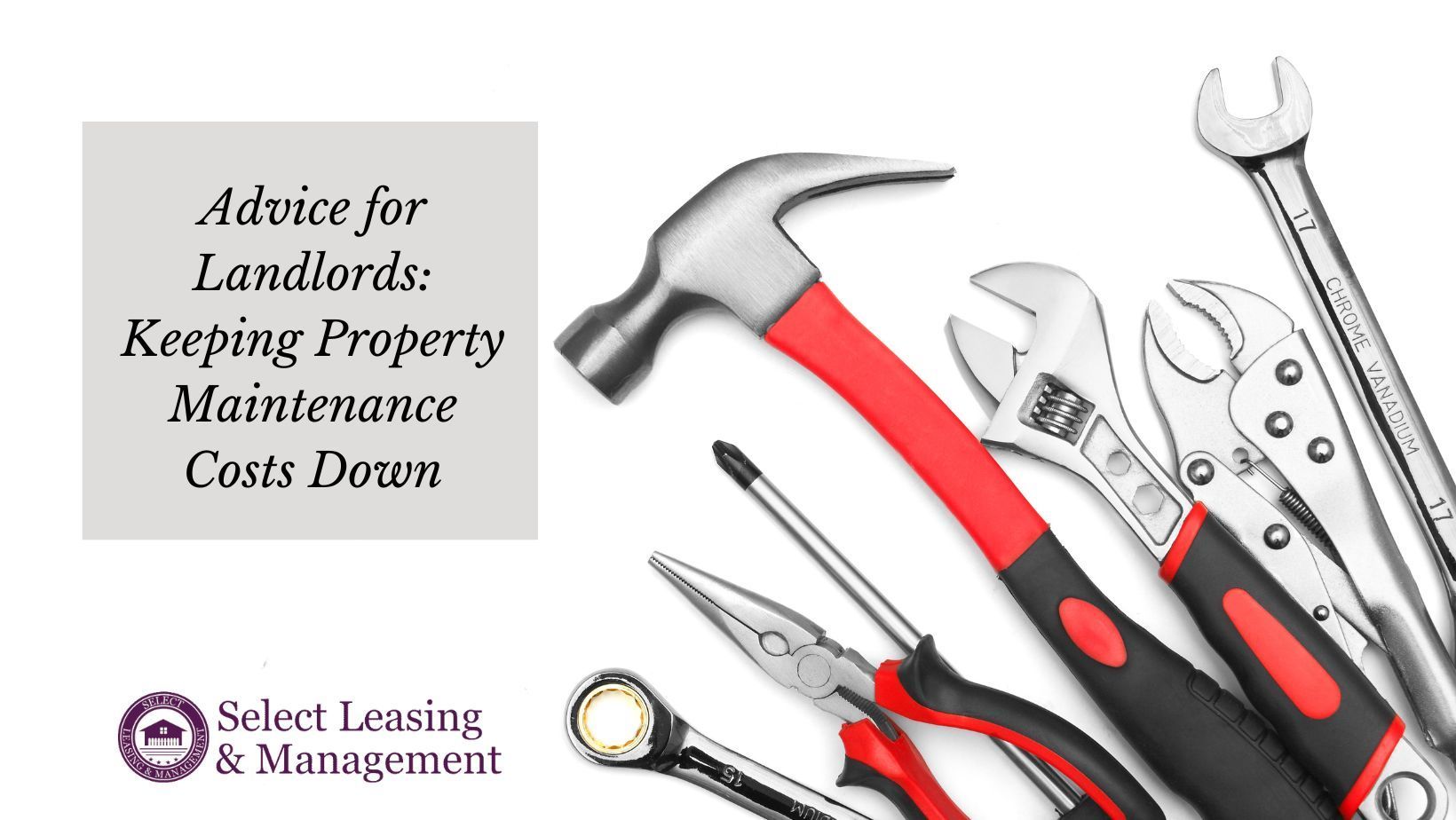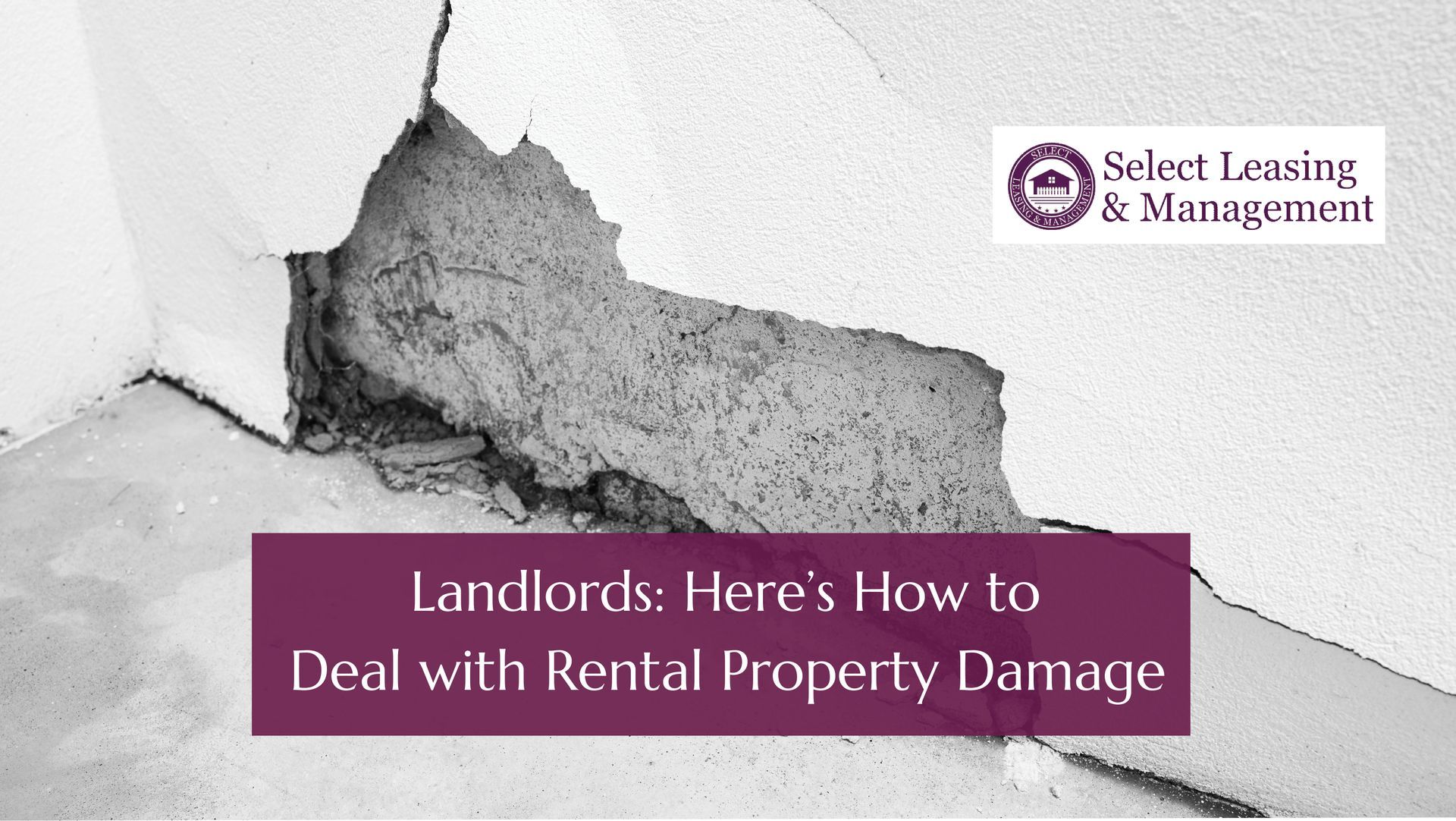Advice For Landlords: Keeping Property Maintenance Costs Down

What Type of Maintenance is a Must?
Taking care of rental property falls into three categories: Basic caretaking or janitorial tasks, repairs, and large maintenance expenditures. These might happen on a routine basis or might crop up as emergencies. Either way, landlords need to be ready (and the money budgeted) to handle them.
Basic Caretaking
These are the day-to-day, weekly, or monthly tasks that must be done to keep a place clean and safe. In multi-family rental buildings this can mean sweeping or mopping common areas, mowing, shoveling snow, and replacing smoke-detector batteries. For single-family dwellings, it might include changing furnace filters, or providing them so tenants can do so themselves.
Routine pest-control might be done for any type of rental residence.
Repairs
Things don’t break on a schedule. Fixing or replacing windows, fixtures, appliances, HVAC systems, or anything else that needs repair must be done quickly and with as little inconvenience to the tenants as possible.
Capital Expenditures
Any building will eventually need a new roof, windows, HVAC or other big-ticket item. Proper maintenance can extend the life of such things. Plus, routine attention will alert the landlord when the expense is necessary, rather than waiting until it becomes an emergency.
To keep property maintenance costs low, it is best to avoid letting anything become an emergency. Sticking to routine maintenance will keep things in good shape. Keeping a watchful eye out for problems won’t let things fall into further, more costly, disrepair. Here is our advice on how you can put that into practice:
Do Routine Inspections
Make it a point to inspect certain aspects of the rental property on a routine basis. Create a calendar of inspections and stick to it. For example, do a site visit to check the building’s basement for leaks, the shared spaces’ flooring and paint for wear and tear, evidence or pests, and the properties general appearance. Fixing things before they become problematic is almost always more affordable.
Safety and securing of tenants is of the utmost importance, so landlords should routinely check the building’s locks, lights, and security cameras if they have them. They should also look for fire hazards and check fire alarms and sprinklers. Making sure everything is ship-shape will help reduce the risk of an expensive and possibly tragic mishap.
Check In With Tenants
Successful landlords have
good relationships with their renters. Reach out to tenants on a regular basis to ask about any problems or concerns. There may be something minor like a leaky faucet that they didn’t feel was worth contacting the landlord about. Or, they may have noticed their refrigerator doesn’t seem to keep things very cold. A leaky faucet is easily fixed but could signal a larger problem with the pipes. The fridge might be ready for replacement soon. Both are important for the landlord to know about. Small problems can snowball into larger, more expensive ones when they are left unattended.
Schedule Preventive and Seasonal Maintenance
Keeping things in good working order with preventive maintenance saves money in the long run. For example, regularly scheduled spraying for pests can eliminate the possibility of an infestation. Seasonal chores like cleaning gutters, clearing snow, and mowing the lawn will ensure the place does not get rundown. This, in turn, will keep the property desirable for tenants and keep down vacancies. No one wants to live in a building overgrown with weeds or where the sidewalks and entryways are filled with snow and ice or littered with dead leaves.
Individual rental units might need storm windows changed out for screens in the spring, and a check of the furnace in the winter and air conditioning in the summer. They should all have smoke and carbon monoxide detectors tested and batteries replaced on a regular schedule.
Build a Great Contact List
While many landlords think they can save money on property maintenance costs by doing it themselves. Unless a landlord has the skill and time to do projects correctly and quickly, they are better off leaving maintenance and repairs to the experts.
Every landlord needs a list of vetted, insured, and dependable vendors they can call on in an emergency as well as for routine maintenance and repairs. Creating this list before it is urgent gives the landlord time to shop around for someone who can do the work well for the best price.
Know when to Repair vs. Replace
Making smart decisions about whether to replace or repair something can make a difference in property maintenance costs. For example, parts or a repairman for an old appliance might be hard to find. And even if it is fixable, how long will it last after the repair? Another consideration is the tenant’s convenience. How long will the repair leave them without the use of that appliance?
Replacing expensive fixtures or appliances may seem more expensive, but if the repair won’t significantly extend the useful life of the item, it is better to get a new one. This is also a way to update a rental property. For example, a brand new stove or refrigerator might be a big upgrade, making it more attractive to the current and future tenants.
Consider a Professional Leasing & Management Company
One way to save money on property maintenance costs, as well as time and headaches, is to hire a professional property management company like Select Leasing & Management. Management companies either have their own maintenance staff or contract with local vendors. Because they manage properties for several different landlords, they are able to negotiate the best rates for the work that needs to be done.
Landlords who do not have the time to devote to maintenance and other tenant issues can rely on a management company to be their liaison. The company can handle a routine maintenance schedule and take care of any emergency calls. They will let the landlord know when larger expenses are on the horizon.
In addition to maintenance, leasing and management companies can take care of the administrative functions for a rental property such as finding tenants, doing background checks, collecting rent, and even starting eviction processes if that is ever necessary.
Landlords who put their trust in a professional leasing and management company rarely go back to doing the work themselves. Hiring someone like Select Leasing & Management is a great way to ease the burden of maintenance tasks and the costs that come with them.
Cover photo by Krasyuk by Canva.com
Share this post











